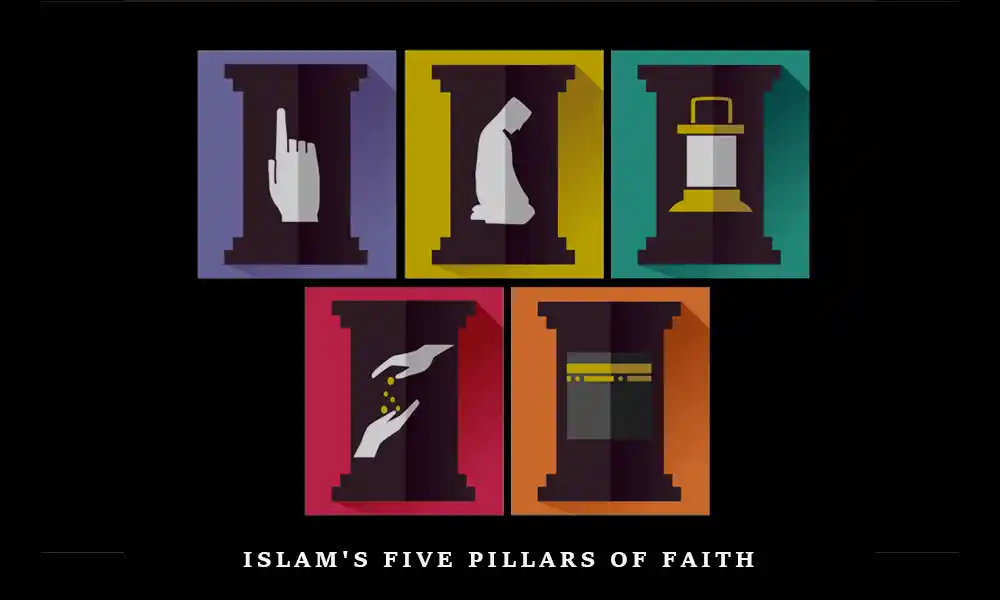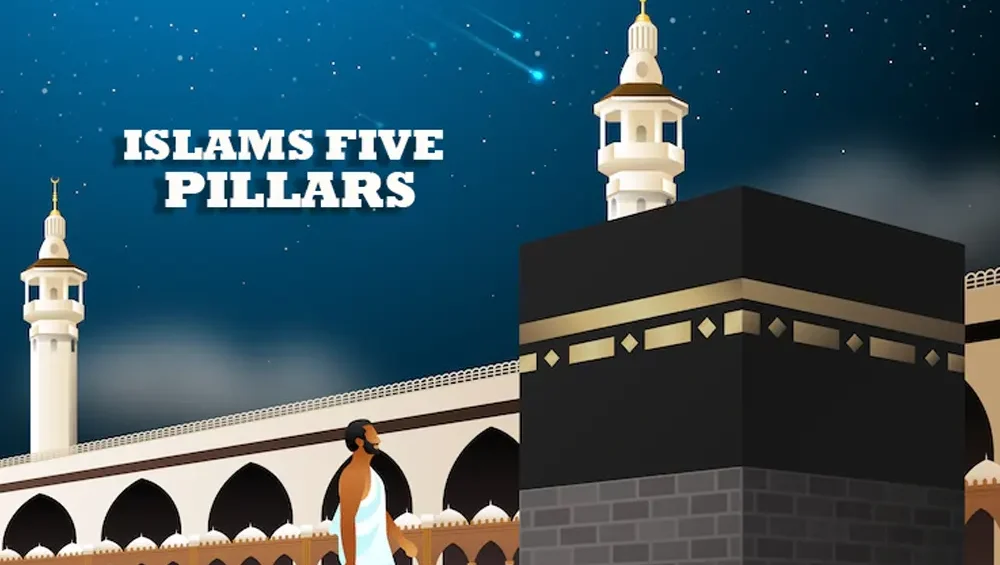In Islam, recognizing and acknowledging one’s obligations to one’s faith is essential. The fundamental tenets of Islam’s five pillars serve as the foundation for the entire system. It teaches the way of life and integrates it into daily life. The five pillars of Islam have a fundamental belief in Islam. They help followers remember Allah’s teachings daily and prioritize Him over all else. It aids in establishing a connection between Muslims and the highest authority.
Faith in Islam is based on Five Pillars:

The five pillars of faith in order:
1- The profession of faith (the Shahada)
The fundamental Muslim declaration of faith and commitment is the Shahada: Allah is the only true God, and Muhammad is His Messenger. It sets Muslims apart from people of other faith. In the West, the Arabic phrase that appears on the flags of ISIS, al-Shabaab, and Boko Haram is probably more well-known than the Shahada. However, reciting the Shahada three times in front of witnesses is a requirement for becoming a Muslim, so violent groups are not the only ones who use it.
2- Daily prayers (salat)
Salah is a ritual of praying to Allah five times a day facing Mecca. Muslims must perform rituals after dark, at noon, at sunset, in the afternoon, and at dawn. It begins with the opening recitation of the Qur’an. On Friday, the men gathered at the nearest mosque for midday prayers. However, it is not mandatory for women. Prayer cleanses the body and mind of past sins. It brings positive energy and consistency to life. It also increases equality, brotherhood, and humility among Muslims and provides peace to the soul.
3- Alms-giving (zakat)
This Islamic principle requests charity on behalf of the less fortunate. Muslims who are wealthy or financially secure contribute to organizations to construct mosques, schools, hospitals, and other facilities that can assist the less fortunate in any way. Bringing people Allah’s blessings is a religious duty.
The charity helps people understand the plight of others and helps them become more selfless for a short period. Additionally, it restores everyone’s faith in humanity and supports the needy to experience solidarity. It contributes to increasing wealth and preserving social equilibrium.
4- Fasting (Sawm)
Ramadan comes into play because the word “sawm” means to fast. During the holy month of Ramadan, one does more than avoid eating. Fasting is the process of abstaining from temptations and bad habits. Good Muslims should avoid eating and drinking, including water, engaging in sexual activity, smoking, and having impure thoughts from dawn to dusk. Everyone should be away from immoral behavior and causing harm to themselves or others during Ramadan and the rest of the year.
When fasting, there are two named meals: Suhoor, the morning meal that must be consumed before sunrise, and Iftar, the evening meal that must be consumed either at sunset or shortly after. Dates have numerous health benefits and are traditionally used to break the daily fast.
5- Hajj or pilgrimage to Mecca
Hajj, the annual pilgrimage to Mecca, is the fifth and final pillar of the five pillars of Islam. Muslims from around the world gather in Mecca to worship Allah SWT and perform several rituals to bolster their faith and devotion. To enter a spiritual state of holiness known as Ihram, pilgrims must don plain white clothing. We are all equal to Allah SWT, regardless of age, ethnicity, status, or race. Hajj is performed from the 8th to the 12th of Dhul Hijjah, the 12th and final month of the Islamic calendar.






1 Comment
You ought to take part in a contest for one of the best sites on the net. I will highly recommend this blog!